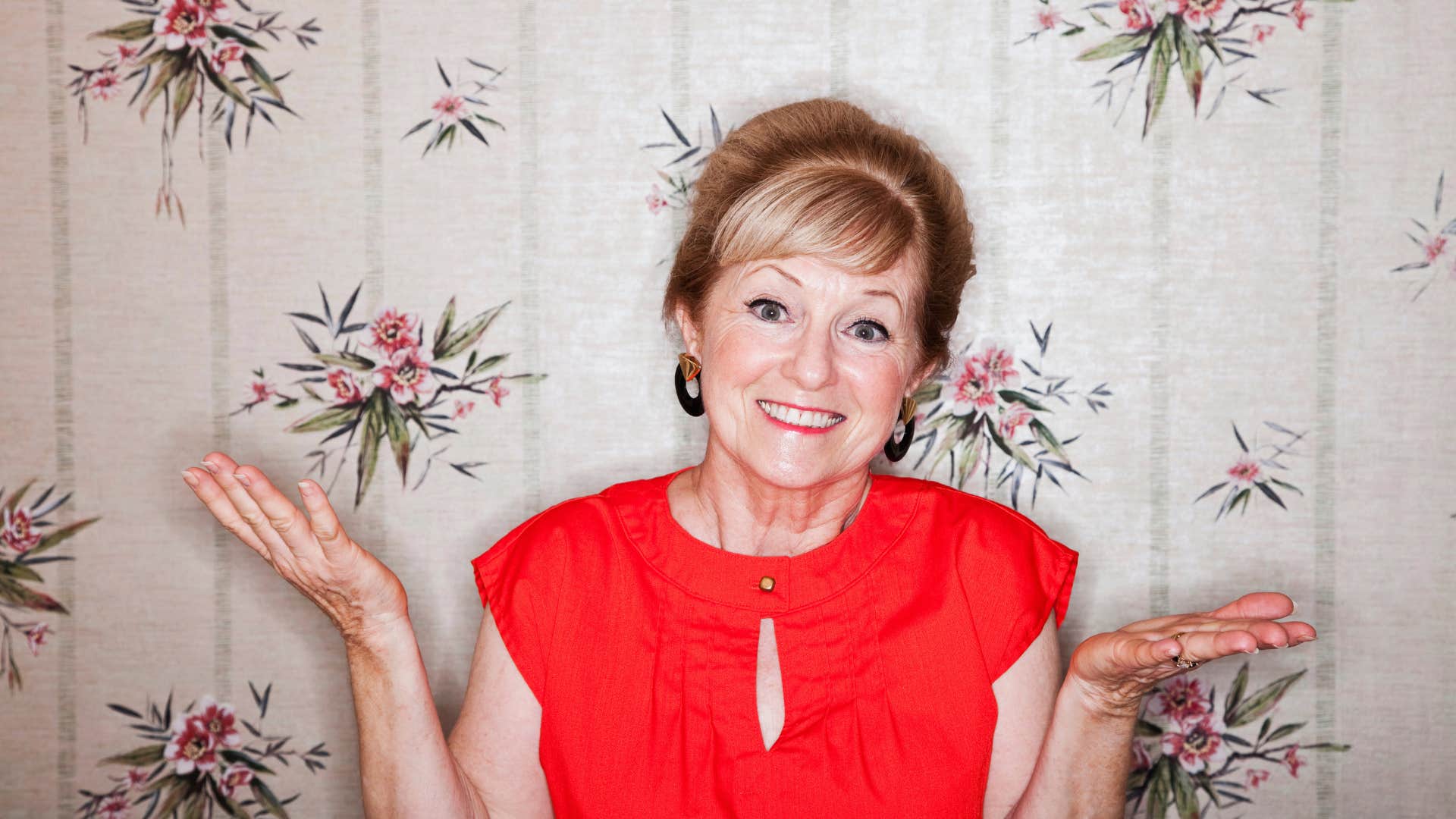11 Phrases Smart People Know Would Only Make Them Sound Dumb
If you want to sound sharp, skip the phrases that give away more than you realize.
 maradon 333 / Shutterstock
maradon 333 / Shutterstock Sounding smart is a subtle art that doesn’t reply on big words or dominating conversations. the words you don't say can be just as important as those you do, and there are several phrases smart people know would only make them sound dumb.
In fact, some of the smartest people out there are the ones who are the most careful with their language. They understand how quickly the wrong phrase can change the entire tone of a room. A big part of navigating Intelligent conversation is knowing which expressions are better left unsaid. Certain phrases might feel powerful in the moment, but tend to raise red flags or send the wrong message and can therefore make someone seem less thoughtful than they really are. Smart people often avoid saying these things because they’ve seen how those phrases land, and they know there’s a better way to make a point.
These are 11 phrases smart people know would only make them sound dumb
1. “I’m just being honest”
 SteveLuker from Getty Images Signature via Canva
SteveLuker from Getty Images Signature via Canva
On the surface, this sounds like integrity, but more often than not, it’s used to justify rudeness or bluntness that wasn’t necessary in the first place. Smart communicators know that honesty without empathy often just feels like criticism. This phrase also tends to make people defensive, which shuts down real conversation.
Research suggests that people are more receptive to truth when it’s delivered with warmth and timing rather than with blunt force. When someone feels the need to announce their honesty, it can come across as if they’re bracing for a reaction they know they could have handled better. Truly honest people simply let their consistency and kindness speak for them.
2. “No offense, but…”
 Mangostar Studio via Canva
Mangostar Studio via Canva
This phrase almost guarantees that whatever is about to follow will be offensive. It’s a preemptive shield against accountability, like trying to make yourself immune to criticism before you’ve even said anything. But instead of softening the blow it makes you sound self-aware and inconsiderate.
Disclaimers like this don't reduce the perceived rudeness of a comment. Instead, they actually increase it. People hear "no offense" and immediately brace themselves for something offensive. Intelligent speakers understand that if a statement might cause offense, it’s worth either rephrasing or reconsidering altogether.
3. “This might be a dumb question, but…”
 BananaStock via Canva
BananaStock via Canva
It may sound ironic, but labeling your question as dumb actually draws more attention to your own self-doubt. Smart people know that curiosity is a strength, and there's no need to undermine it with disclaimers. Starting off this way diminishes your confidence and the value of the question itself.
Questions are how progress happens. Framing a question with insecurity can lead to others taking you less seriously, even if the question is insightful. Confident curiosity sounds more like, “I was just wondering...” or “Can you help me understand...?”
4. “I already knew that”
 Miguel Guasch via Canva
Miguel Guasch via Canva
It might feel tempting to say this when someone explains something obvious, but it rarely lands well. This phrase makes you sound defensive, even competitive, especially in group settings. It can shut down further explanation and make others hesitant to engage with you again.
Claiming knowledge after the fact often comes across as fake. Smart people know that being a good listener earns more respect than reminding everyone what you already know. Instead of saying, “I knew that,” they’re more likely to say, “That makes sense,” or “Thanks for the reminder.”
5. “That’s just how I am”
 Comstock Images from Photo Images via Canva
Comstock Images from Photo Images via Canva
This one often comes up in conversations about behavior or feedback, and it’s usually meant to end the discussion. But rather than sounding confident, it can signal a refusal to grow or adapt. People who lean on this phrase often come off as inflexible or uninterested in accountability.
Growth-oriented individuals tend to embrace feedback, not shut it down. Saying, “That’s just how I am” shuts the door on any possibility for development. Smart people tend to reframe the same idea with something like, “I’m working on that,” or “I’ve been trying to get better about it.”
6. “I’m not like other people”
 redrooster2 from Getty Images via Canva
redrooster2 from Getty Images via Canva
This might be true in a literal sense. We’re all unique, after all. But when said out loud, it tends to feel like an attempt to elevate yourself above others. It also has the unintended effect of distancing you from people rather than making you stand out in a positive way.
The need for uniqueness can be motivating when channeled well, but alienating when it turns into superiority (Snyder & Fromkin, 1980). Smart people know that actions speak louder than declarations. You don’t have to say you’re different if you consistently show it through thoughtfulness, creativity, or kindness.
7. “Everyone else is just jealous”
 SDI Productions from Getty Images via Canva
SDI Productions from Getty Images via Canva
This phrase is often used as a defense mechanism when someone feels criticized or misunderstood, but attributing all negative feedback to jealousy oversimplifies complex dynamics and shuts down any opportunity for introspection. It also makes you sound more insecure than confident.
People who are truly confident don’t need to dismiss others to validate themselves. Deflection tactics like this are more common in individuals with fragile self-esteem. Smart people tend to ask, “Is there anything useful in this feedback?” instead of assuming bad intentions.
8. “I don’t care what anyone thinks”
 PacoAlacid from Getty Images via Canva
PacoAlacid from Getty Images via Canva
It’s healthy not to obsess over others’ opinions, but claiming to never care can feel disingenuous. Humans are wired to care about belonging and reputation, and saying you don’t can sometimes come across as bravado or emotional armor. This is often said as a defense rather than a reflection of true detachment.
Well-adjusted people care selectively, not universally, and not not at all. Smart communicators acknowledge that some opinions do matter, and they are intentional about which ones they pay attention to.
9. “That’s just common sense”
 Syda Productions via Canva
Syda Productions via Canva
Calling something common sense is often a shortcut to shut down debate. It implies that anyone who disagrees must be lacking basic intelligence, which rarely helps the conversation move forward. It’s also intellectually lazy, since common sense varies wildly depending on culture, background, and experience.
Labeling things as obvious discourages critical thinking and stifles curiosity. Smart people are more likely to say, “Here’s how I see it,” or “Let’s break it down,” which invites discussion rather than dismissing it.
10. “I’m always right”
 Comstock Images from Photo Images via Canva
Comstock Images from Photo Images via Canva
Whether it’s said jokingly or not, this phrase raises eyebrows. It makes you sound either arrogant or unaware of how often everyone, including intelligent people, gets things wrong. Confidence is attractive; certainty that borders on infallibility is not.
Humility has been linked to stronger collaboration, better leadership, and more creative problem-solving. Smart people know that being right isn’t the goal, learning and evolving are. They ask more questions than they answer, and they’re open to being surprised.
11. “Whatever”
 Kali9 from Getty Images via Canva
Kali9 from Getty Images via Canva
Short, dismissive, and almost always a conversation ender, “whatever” signals that you’ve checked out. It might feel like the only option when you're frustrated, but it tells people that you’re no longer interested in engaging respectfully. Over time, it creates distance and erodes credibility.
Phrases like this escalate tension by shutting down connection. Smart communicators look for ways to express their limits without closing the door completely. Saying something like, “Let’s take a break,” or “I need time to think about that,” preserves dignity on both sides.
Executive Editor Arianna Jeret, MA/MSW, is a writer, former family law mediator, and recognized expert on relationships and conflict resolution. Her work has been featured in Cosmopolitan, The Huffington Post, Yahoo, MSN, Bustle, Parents and more.

